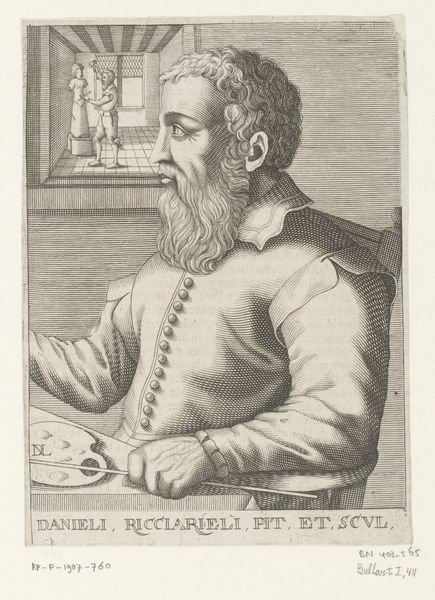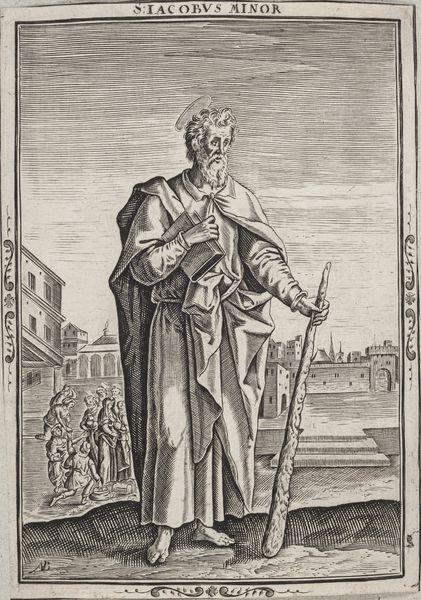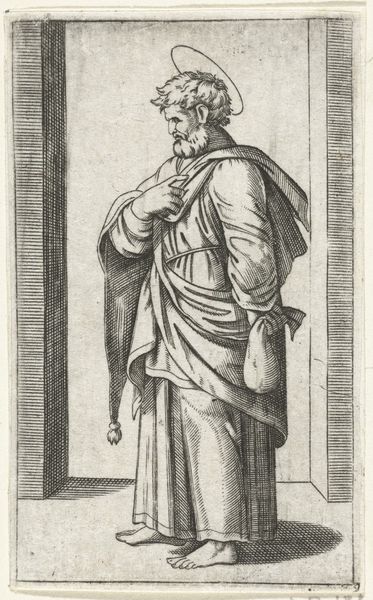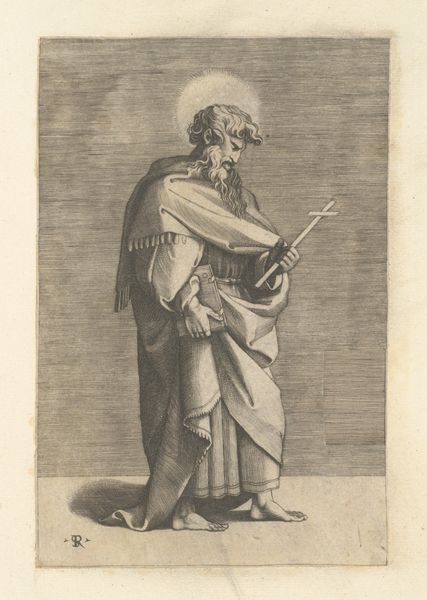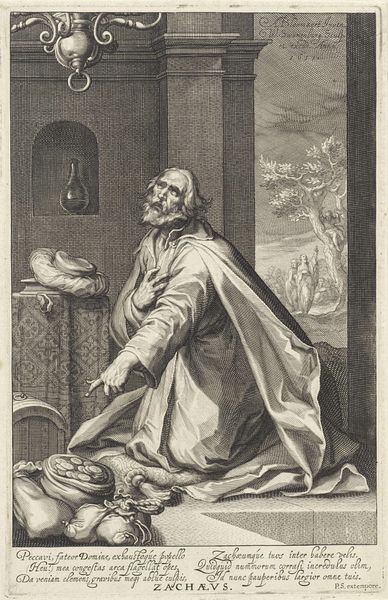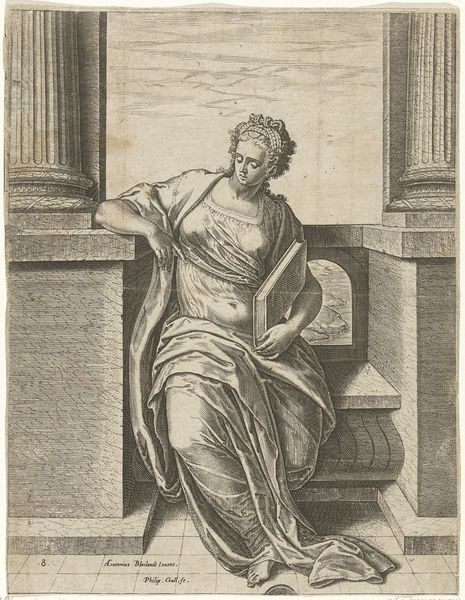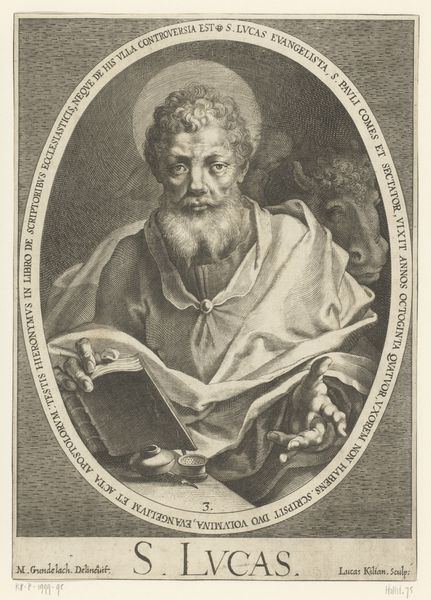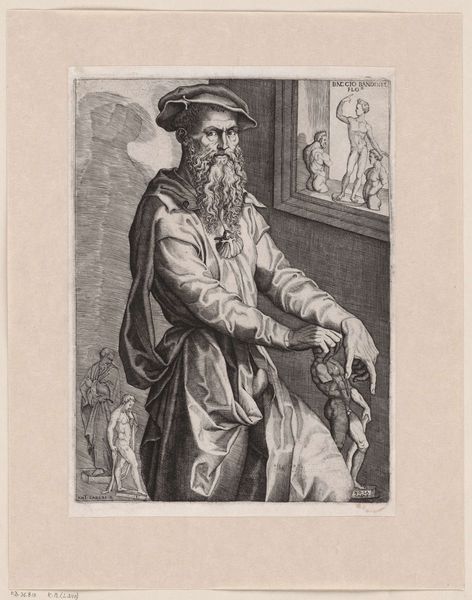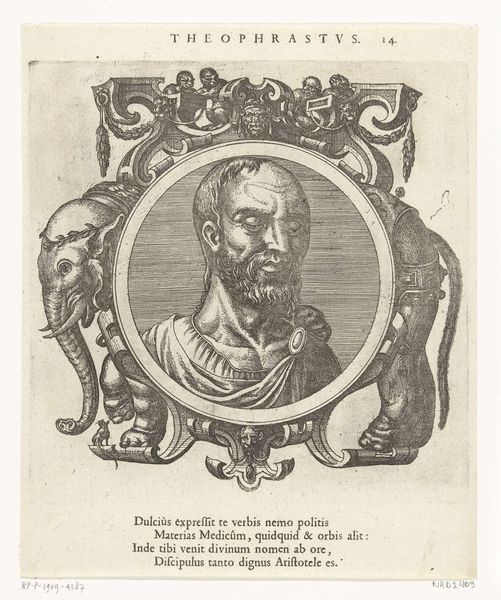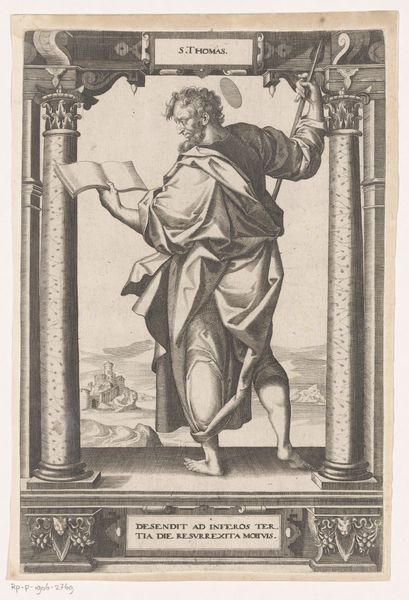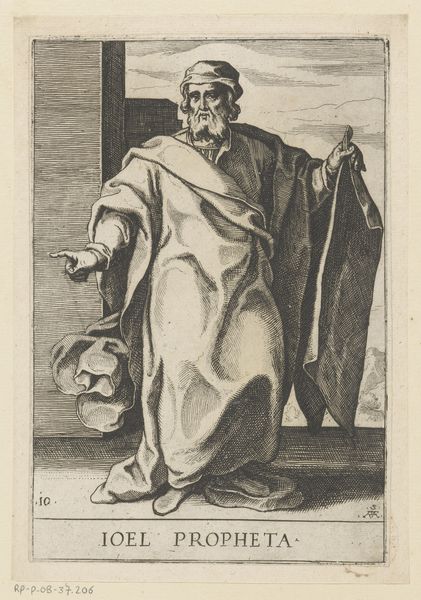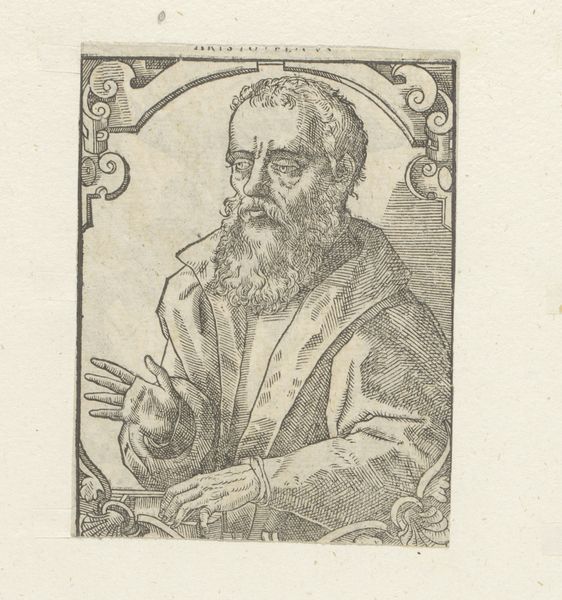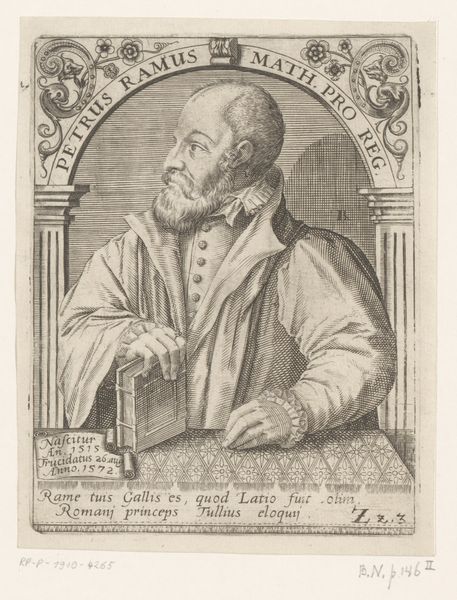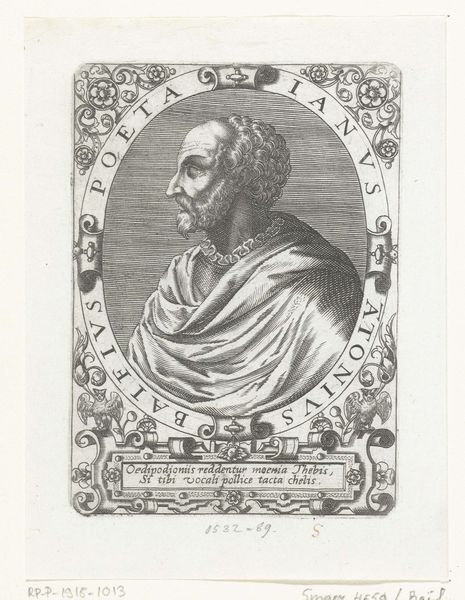
print, intaglio, engraving
#
portrait
#
baroque
# print
#
intaglio
#
old engraving style
#
caricature
#
engraving
Dimensions: height 183 mm, width 133 mm
Copyright: Rijks Museum: Open Domain
Editor: So, this is "Portret van Maarten van Heemskerck," a baroque-style engraving made in 1682 by Edme de Boulonois, currently housed in the Rijksmuseum. I find the contrast between the detailed portrait and the chaotic scene in the background really striking. How do you interpret this work? Curator: It’s a fascinating piece! Consider the date—1682. Europe was in the throes of religious and political upheaval. A portrait of an artist during this time wasn't just about capturing a likeness; it was about projecting an identity, a stance. Who was Maarten van Heemskerck and what did he represent within that social context? Editor: Well, I know he was a painter, but I don't know much beyond that. Curator: Exactly! Boulonois deliberately places Heemskerck amidst figures drawn from classical antiquity and mythology. Consider the social hierarchies implied here. Who has access to, and understands, these themes? Boulonois uses visual language to create an intellectual portrait of the artist himself. He's a learned man, linked to classical ideals. What does that signal about his status? Editor: It seems like it elevates him above the common person, aligning him with historical figures of importance. So, the image becomes a statement of intellectual and social power. Curator: Precisely. It reflects a desire to define the role of the artist in society, to position art as an intellectual pursuit, not just a craft. Editor: That's fascinating. I hadn't considered how the historical context influenced the imagery itself to create a narrative around the artist. Curator: It encourages us to think about whose stories are told, how they're told, and the power dynamics embedded within artistic representation.
Comments
No comments
Be the first to comment and join the conversation on the ultimate creative platform.
